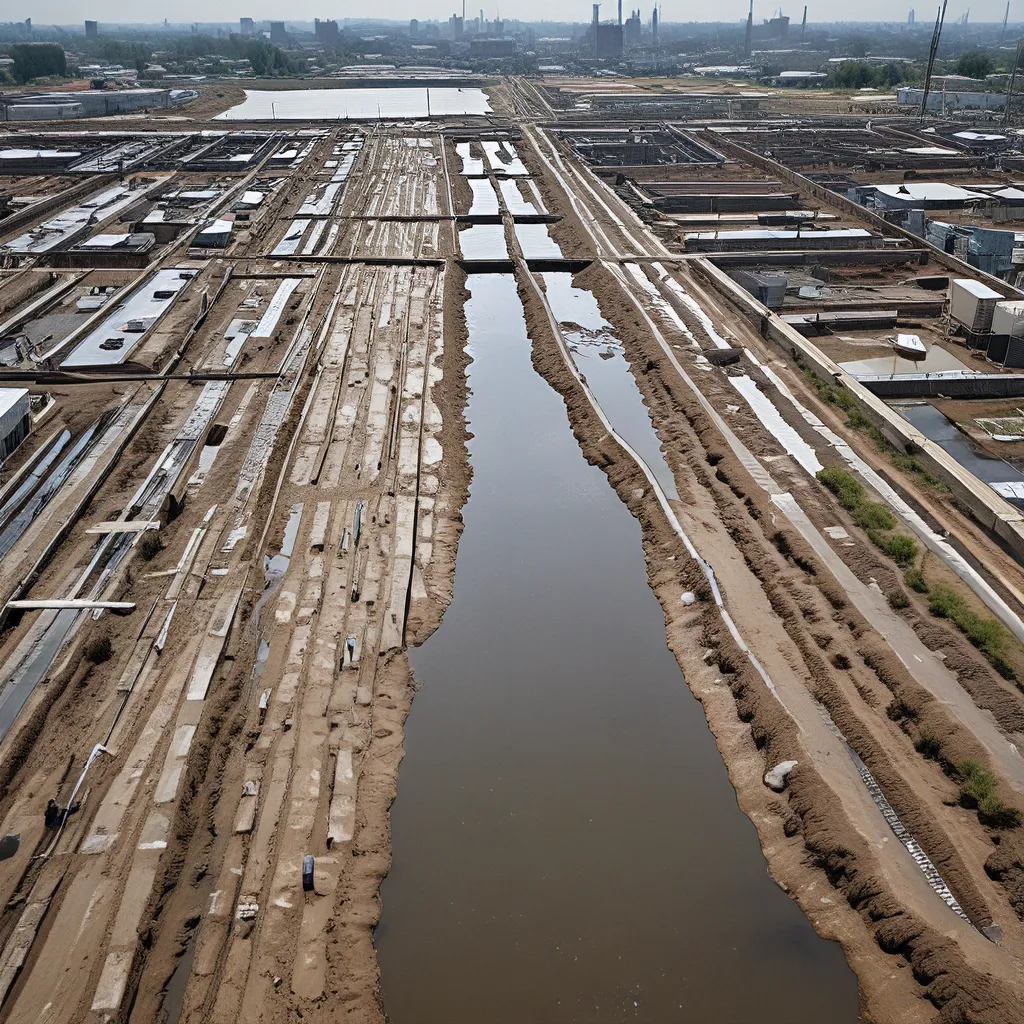
As someone deeply passionate about the environment and sustainable urban planning, I’ve always been fascinated by the intricate connections between water, energy, and land use. It’s a topic that’s near and dear to my heart, and I’m thrilled to dive into it with you today.
Unraveling the Urban Nexus
The urban nexus is a concept that recognizes the interdependence of these three critical systems – water, energy, and land use. It’s all about understanding how decisions and actions in one area can have rippling effects on the others, and how we can harness these relationships to create more resilient and sustainable cities.
You see, it’s not enough to just think about water management or energy production in isolation. These elements are deeply intertwined, and the way we approach them can have a profound impact on the efficiency, reliability, and environmental impact of our urban infrastructure.
For example, did you know that the energy required to treat and distribute water accounts for up to 4% of a city’s total energy consumption? That’s a staggering statistic, and it highlights just how crucial it is to consider the energy-water nexus when planning for the future.
Embracing the Complexity of Wastewater
At the heart of this urban nexus is the often-overlooked world of wastewater management. It’s a complex and multifaceted challenge that touches on all three of these critical systems – water, energy, and land use.
Recent research has shown that wastewater treatment can be a significant consumer of energy, with some facilities using as much as 50% of their total energy budget just to power their operations.
But here’s the fascinating part: this energy-intensive process can actually be transformed into an opportunity for sustainable energy generation. By harnessing the power of anaerobic digestion and other innovative technologies, we can turn wastewater treatment plants into net energy producers, reducing their environmental footprint and contributing to the overall sustainability of our urban systems.
The National Renewable Energy Laboratory (NREL) has been at the forefront of this research, developing cutting-edge modeling and analysis frameworks to help cities and municipalities make the most of their wastewater resources.
Integrating Water, Energy, and Land Use
But the urban nexus doesn’t stop there. The way we manage our wastewater also has a direct impact on how we use our land and other natural resources.
Recent studies have shown that sustainable wastewater treatment can unlock new opportunities for urban agriculture, water reuse, and ecosystem restoration. By thinking holistically about the interconnected systems at play, we can design wastewater treatment solutions that not only reduce environmental impact but also enhance the livability and resilience of our cities.
Imagine a future where wastewater treatment plants double as hubs for urban farming, using reclaimed water to grow fresh produce for local communities. Or a scenario where treated wastewater is repurposed for irrigating public parks and green spaces, reducing the demand for freshwater and enhancing the urban landscape.
These aren’t just pipe dreams – they’re real-world solutions that forward-thinking cities are already exploring. And as the team at Alpha Wastewater can attest, the potential for innovation in this space is truly limitless.
Embracing the Future of Sustainable Wastewater Management
So, what does the future of wastewater management look like? If you ask me, it’s a future where water, energy, and land use are seamlessly integrated to create more resilient, efficient, and environmentally-friendly urban systems.
It’s a future where wastewater treatment plants are no longer seen as necessary evils, but rather as vital components of a thriving, sustainable ecosystem. Where the energy and resources we recover from wastewater are celebrated as valuable commodities, powering our cities and nurturing our communities.
And it’s a future where cross-collaboration and interdisciplinary thinking are the norm, as urban planners, engineers, and policymakers work hand-in-hand to unlock the full potential of the urban nexus.
Of course, getting there won’t be easy. There are technical hurdles to overcome, financial barriers to navigate, and deep-seated mindsets to shift. But I truly believe that with the right vision, the right partnerships, and the right innovative spirit, we can make this future a reality.
So, what do you say – are you ready to join me on this journey towards a more sustainable, resilient, and livable urban future? Because trust me, the possibilities are endlessly fascinating and exhilaratingly complex. It’s a challenge that’s well worth taking on, one that could transform the way we think about our cities and the way we live in them.
Who knows – maybe we’ll even uncover a few surprises along the way. After all, the urban nexus is full of hidden connections and unexpected opportunities. So let’s dive in, shall we? The future of wastewater management is waiting.